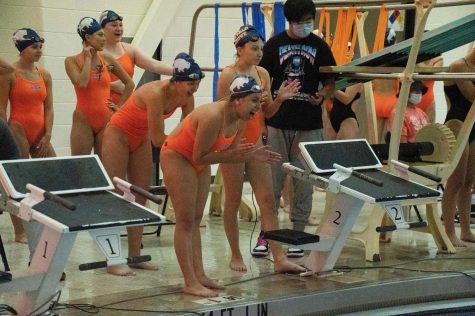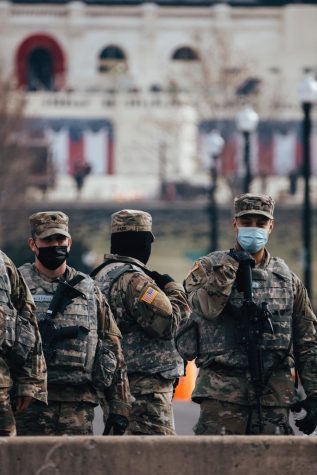Academic-based honors create insufficient representations of students
“If you have received any honors related to your academic achievements beginning with the ninth grade or international equivalent, please indicate number of honors.”
Last fall, over a million students worldwide glanced over this phrase as a part of their Common Application to higher education. It can be hard to say how much of a role this category plays into the application process, as schools differ on their priorities as to what they place weight onto in their selection processes.
The honors on this list can range from athletic awards to honor roll acknowledgements, with applicants doing whatever they can to bolster their profiles to gain an edge in the scramble to attend a “good school.” While these can include important details about a candidate, like an athlete of the year award or a medal at a debate tournament, often this category will be flooded with emptier titles.
Take, for example, the title of National Merit Commended Scholar, which while appearing at first glance to speak to an exceptional level of academic prowess, is actually determined based on a single test score taken via the NMSQT [National Merit Scholarship Qualifying Test] in the fall of students’ junior year. The preliminary test that is administered to students as practice for their upcoming standardized testing has become in and of itself a thing of value. If a student passes the benchmark test score set by the National Merit Scholarship Corporation, which usually involves testing in the top 3-4%, they receive this title.
While it is no easy task to do this, performance on one test on one day should not be the dictator of a title that speaks of both scholarship and merit, especially when the test only analyzes one part of a student’s academic performance. Nonetheless, the program claims that their mission is “a) to promote a wider and deeper respect for learning in general and for exceptionally talented individuals in particular, b) to shine a spotlight on brilliant students and encourage the pursuit of academic excellence at all levels of education and c) to stimulate increased support from individuals and organizations that wish to sponsor scholarships for outstanding scholastic talent.” And yet, they offer scholarships, and the title, only to students who performed well on that exam one fateful morning.
It also presents itself in other organizations, such as the National Honors Society, that appear at first glance to take into account facets like service and integrity, but whittle down to the same issues.
“We look at scholarship, which is the 3.8 GPA aspect that’s already demonstrated,” NHS sponsor Katherine Goebel said. “Then leadership that you’ve taken on, service that you’ve performed, and then character. Those four pillars are what we’re looking for.”
Students are invited to apply for NHS their junior year, as long as their GPA is above 3.8. From there they are required to submit an application to the program, which involves a resume and an essay, attempting to exemplify the student’s leadership roles. If admitted into the program, students are required to complete eight hours of volunteer work per semester in order to maintain membership.
“A lot of people can finesse the system in order to achieve the 3.8, and induction is really only based on that GPA,” senior Zori Angelova said. “All while they say the other aspects are part of it as well. I understand [the kids] though, as they can’t really control it because they’re under the pressure of succeeding.”
As for character, Goebel states that names are cross-checked with the administration in order to ensure the students accepted are positive members of the student body.
“Obviously it’s very difficult to find an exact system,” senior NHS vice president Sanskar Siddharth said. “When you have as many students as NHS does, it’s hard to focus on all of them in the different ways they are involved.”
While at first glance this may seem like the strategies in place are effective to ensure the members are encompassing many facets of excellence -at least more than that of the National Merit Commended Scholar title- the pitfalls become evident after a little analysis.
Consider first BG’s GPA requirement of 3.8. Assume that student A is enrolled in four AP classes, an honors class and one regular class. Student A can receive B’s in five out of six of those courses, any five, and still have a GPA above 3.8. Now let’s look at Student B, who is enrolled in 3 regular courses and three honors courses. If that student receives two Bs, one in each type of course, he/she is immediately ineligible from NHS.
“I took a lot about the GPA into account when picking classes,” Angelova said. “As bad as it sounds, if I was interested in a class and it didn’t help my GPA, I didn’t take it.
Service hours are also a requirement, but the program is very lenient as to what they accept as volunteership, which last semester included sitting to monitor the art gallery for lunch periods. That could be redeemed for up to four of the eight required hours of service.
While some students do in fact take advantage of the opportunity to perform service in the community, others do whatever they can to simply keep the title of being a member of the program.
“[Taking advantage] is unfortunate, because through NHS, you’re given opportunities to lead, to invoke a positive change and build compassion and kindness,” Goebel said. “And you don’t always get that opportunity.”
But with looming pressures of academic standards and the push to strengthen applications, it seems incomplete to assert all of the blame on the students. Although they are partially at fault for lacking integrity, to expect teenagers to seek out positive experiences in their communities, especially when the organization they are doing it for demands far less than that to keep the title they originally joined for, ends up being a very difficult task. Despite efforts to limit the amount of illegitimacy in this facet of the program, it is a well-known fact among the student body that many of the hours are faked. With a plethora of stressors, it’s reasonable to see students opt for the simplest solutions in order to add to their resumes, rather than holding true to their honor for a problem that may not be at the top of their priorities.
The problem lies not with the students, and not with the college selection process, although neither are perfect. It lies with the misleading titles that are presented by such organizations. The National Merit Commended Scholar and the National Honors Society both claim they honor student excellence, but both fall short in truly assessing what makes a student stand out.
At the end of the day, that’s a question that will forever fail to be answered. It’s impossible to quantify what makes a student “excellent”, as it’s an incredibly complex question. But trying to do that with stats and stand-ins for character are not effective substitutes, and



